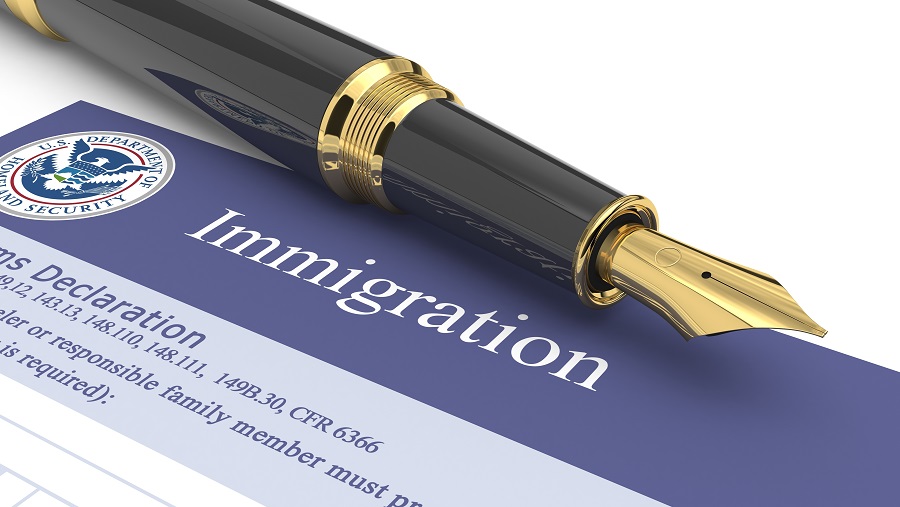
If you're trying to figure out your past immigration history or simply need a copy of your records, you're not alone. Thousands of immigrants and their families request their U.S. immigration files each year. The good news? You don’t need to hire a lawyer. Thanks to the Freedom of Information Act (FOIA), you can request these records yourself and this guide will show you how.
FOIA Request, Explained
Why You Might Need Your Immigration File
What’s Inside an Immigration File (A-File)?
How to Request Your Immigration File
Requesting Records for Deceased Relatives
What If You’re Denied or Missing Documents?
FOIA Request Examples
Cost to Request Immigration Records
FOIA Processing Times
FOIA Request, Explained
The Freedom of Information Act (FOIA) is a federal law that gives you the right to access records from any federal agency, including U.S. Citizenship and Immigration Services (USCIS) and Customs and Border Protection (CBP). Simply put, a FOIA request can help you retrieve your A-File (alien file), which includes your immigration history and interactions with the government.
You can request an immigration file about yourself, or in some cases, someone else.
Why You Might Need Your Immigration File
Filing a FOIA request is a great way to understand what USCIS knows about you. That’s why immigration attorneys regularly use a FOIA request to collect information about their clients’ immigration history. Attorneys want to get all available information so that they can provide informed advice. An alien file may also contain records that show approval on an immigration status.
The FOIA request is also a useful way to get information about your family genealogy. You can gather actual records filed by a family member that immigrated to the United States many years ago. There are many several someone might need to access their immigration file:
- You don’t remember your previous visa entries or how long you stayed.
- You’ve lost your green card application or need evidence of your legal entry.
- You’re filing a new immigration application and need supporting documents.
- An attorney or immigration consultant mishandled your case and you need to verify what was submitted.
- You want to see records of a deportation or exclusion proceeding from years ago.
There are also some specific reasons not to file a FOIA request.
What’s Inside an Immigration File (A-File)?
An alien file, commonly known as an A-file, is the collection of documents that the U.S. government maintains for non-citizens. This immigration file typically contains all of the official files related to immigration status, citizenship, or relief, and includes both documents submitted by the non-citizen as well as any investigations, statements, correspondence, and memoranda created by the agencies. It also may include other identifying documents, such as birth certificates.
The contents of an A-File can vary depending on your history, but commonly include:
- Copies of immigration forms (like I-130, I-485, I-765, etc.)
- Correspondence with USCIS or other agencies
- Notices of Action (Form I-797)
- Visa applications and supporting documents
- Entry and exit records
- Records of interviews and biometrics
- Removal or deportation documents
- Past FOIA responses
These files can be crucial in piecing together your immigration story, especially if you’ve had multiple entries, exits, or applications over the years.
How to Request Your Immigration File
The great news is that filing a FOIA request for your immigration file is very simple, and it is typically free.
Decide How You’ll File
You can submit a FOIA request in one of two ways:
- Online (Recommended) – The fastest and easiest way is to use the USCIS online FOIA request system at first.uscis.gov. There is no cost to prepare your request this way.
- By Mail – You can still use Form G-639, Freedom of Information/Privacy Act Request, the official FOIA request form, and mail it to USCIS. But be aware, mailed requests often take longer.
Prepare Your Information
To make your request as effective as possible, include:
- Your full name, any aliases, and A-number (if known)
- Date and place of birth
- Details about what documents you’re seeking (be specific!)
- A copy of a government-issued ID
- A signed privacy waiver if you're requesting someone else’s records
Being specific helps USCIS locate your file faster. For example, instead of writing "All my records," say something like "Copies of I-130 and I-485 filed in 2018."
Submit and Wait
Once submitted, USCIS will send you a confirmation with a control number so you can track your request. Processing times can vary widely, but most people receive a response within a few months. You may receive:
- A full or partial set of documents
- A notice stating that no records were found
- A letter explaining why some information was withheld (such as third-party data)
Requesting Records for Deceased Relatives
If you’re doing genealogy research or settling a family matter, you can request an immigration file for a deceased person. USCIS has a Genealogy Program specifically for this purpose. You’ll need to provide proof of death and relationship. Learn more at uscis.gov/genealogy.
What If You’re Denied or Missing Documents?
If your FOIA request is denied or you receive an incomplete immigration file, you have the right to appeal. The denial notice will include instructions on how to submit a FOIA appeal to USCIS or the Department of Homeland Security. This process allows you to challenge redactions, missing documents, or denial of access.
It's important to understand that your immigration file will generally only contain documents that were submitted to or generated by USCIS. For example, if a birth certificate was never submitted as part of an application or petition, it will not be in your file. Likewise, USCIS does not keep a copy of your Certificate of Naturalization after it is issued. However, a copy may be present if it was included as supporting evidence in a separate application.
Knowing what to expect helps you avoid confusion or disappointment if certain documents are not included in your FOIA response.
FOIA Request Examples
The are a variety of reasons one might need records in an immigration file. Here are some example use cases and how the records may be requested:
I lost a copy of the I-485 application that I filed several years ago. Now, I need some information on that application. How can I get a copy?
File Form G-639 with a request for "any all copies of I-485 applications that include my name and/or A-number."
My sister was adopted from Korea in 1983, and I want to learn more about her family history. How can I get the details of her immigration to the United States?
Submit the FOIA request for "my sister’s complete alien file as well as any and all copies of records that include her name."
I overstayed my visa, and now I am in removal proceedings. How can I find out what information USCIS has on me? I want to know this information to improve my case.
File Form G-639 with a request for "my complete alien file."
I need to establish my grandfather’s U.S. citizenship to gain my own citizenship through acquisition. He immigrated from the Philippines in the 1990s. How can I get proof that my grandfather became a naturalized U.S. citizen?
File Form G-639 with a request for "my grandfather’s complete alien file as well as any and all copies of records related to his naturalization."
Cost to Request Immigration Records
There is no cost to submit an online FOIA request or file Form G-639, Freedom of Information/Privacy Act Request. Although you will consent to paying up to $25 (for copy services) when filing the form, no money is due at the time you file. Further, most searches do not result in a fee to the requester.
FOIA Processing Times
FOIA processing times are infamously slow. A request for immigration files can vary significantly based on the nature of the request. Simple requests for specific documents may only take 4-12 weeks. However, more complex requests and requests for entire immigration files can easily take more than 6 months. For this reason, limit your request to what you need.
If you have scheduled hearing with an immigration judge or certain other extraordinary circumstances, you may request expedited processing of your FOIA request.
About CitizenPath
At CitizenPath, we empower immigrants and their families with affordable, step-by-step help for immigration applications. Our online service provides simple, affordable, step-by-step guidance through USCIS immigration applications. Individuals, attorneys and non-profits use the service on desktop or mobile device to prepare immigration forms accurately, avoiding costly delays. CitizenPath allows users to try the service for free and provides a 100% money-back guarantee that USCIS will approve the application or petition. We provide support for the Adjustment of Status Package (Form I-485), Naturalization Package (Form N-400), and several other immigration services.
Want more immigration tips and how-to information for your family?
Sign up for CitizenPath’s FREE immigration newsletter and
SAVE 10%
on our immigration services



